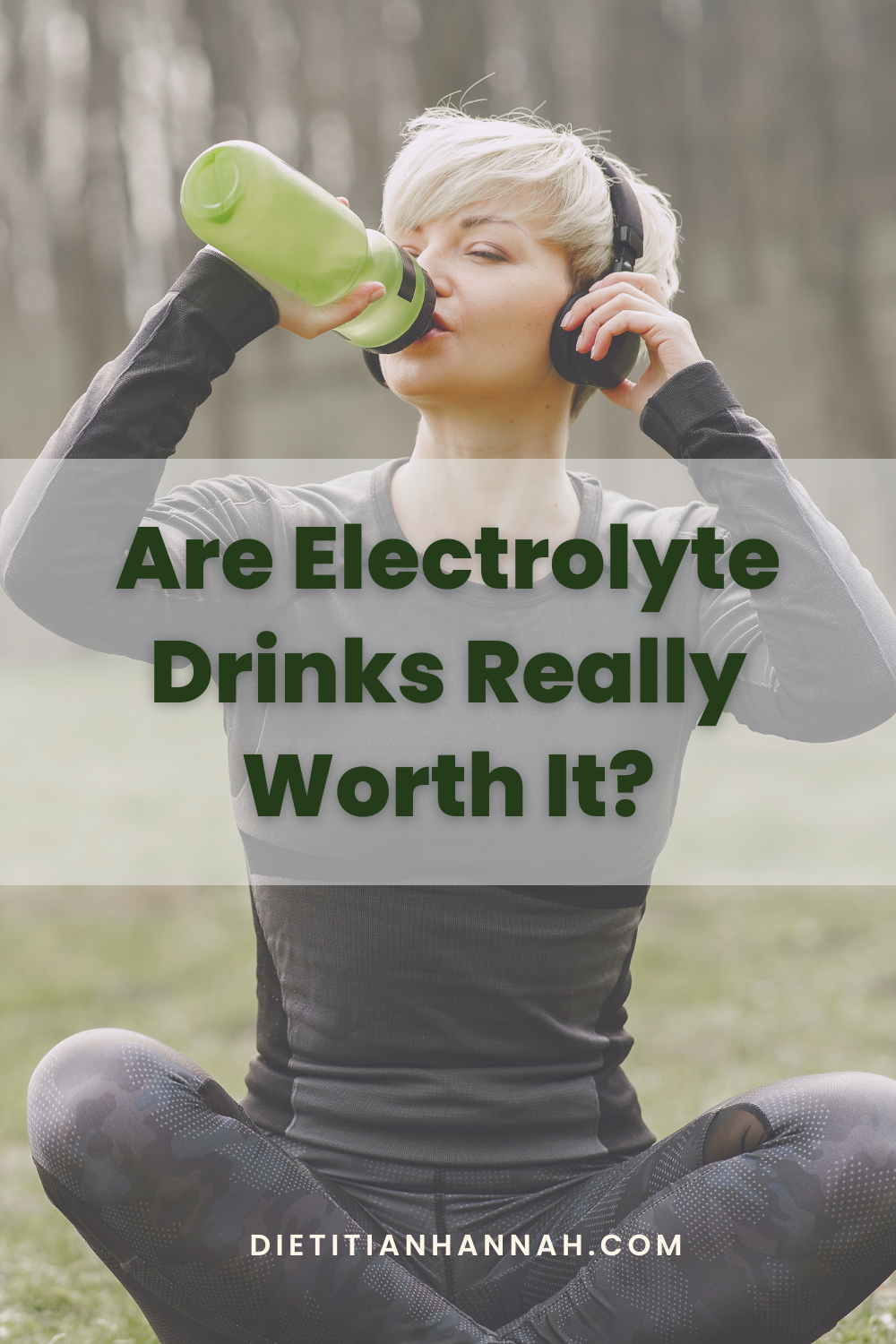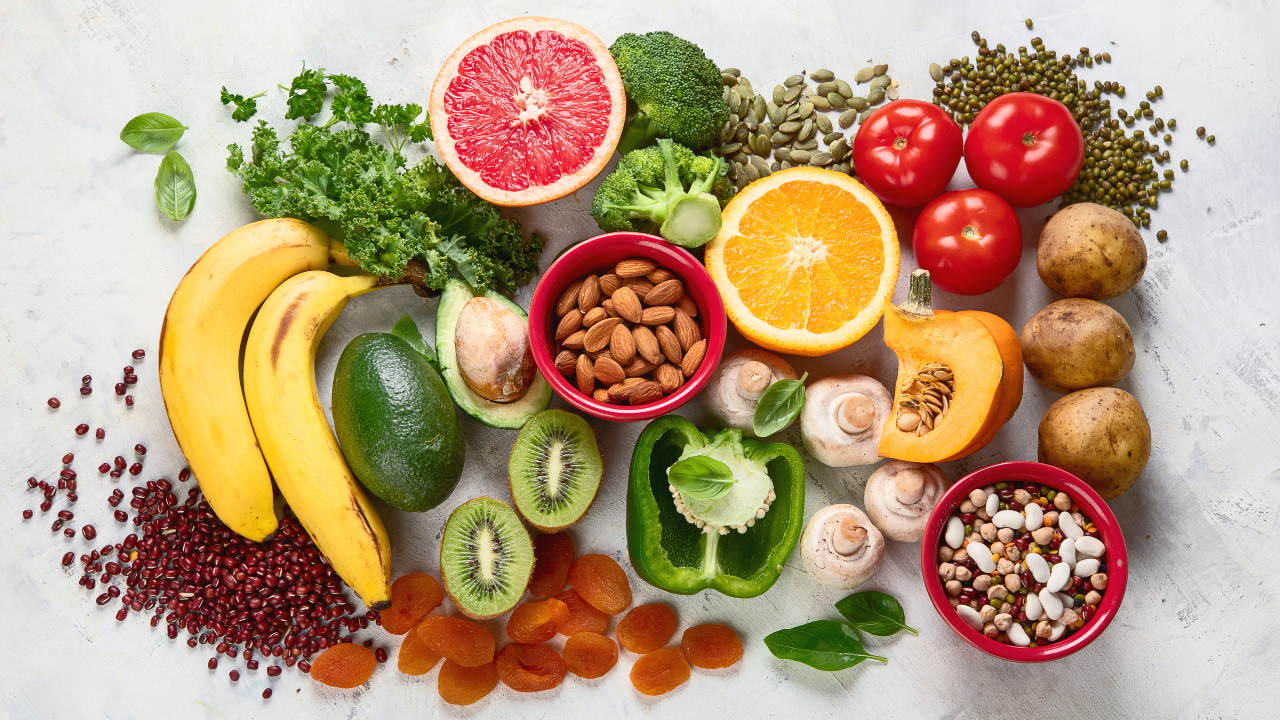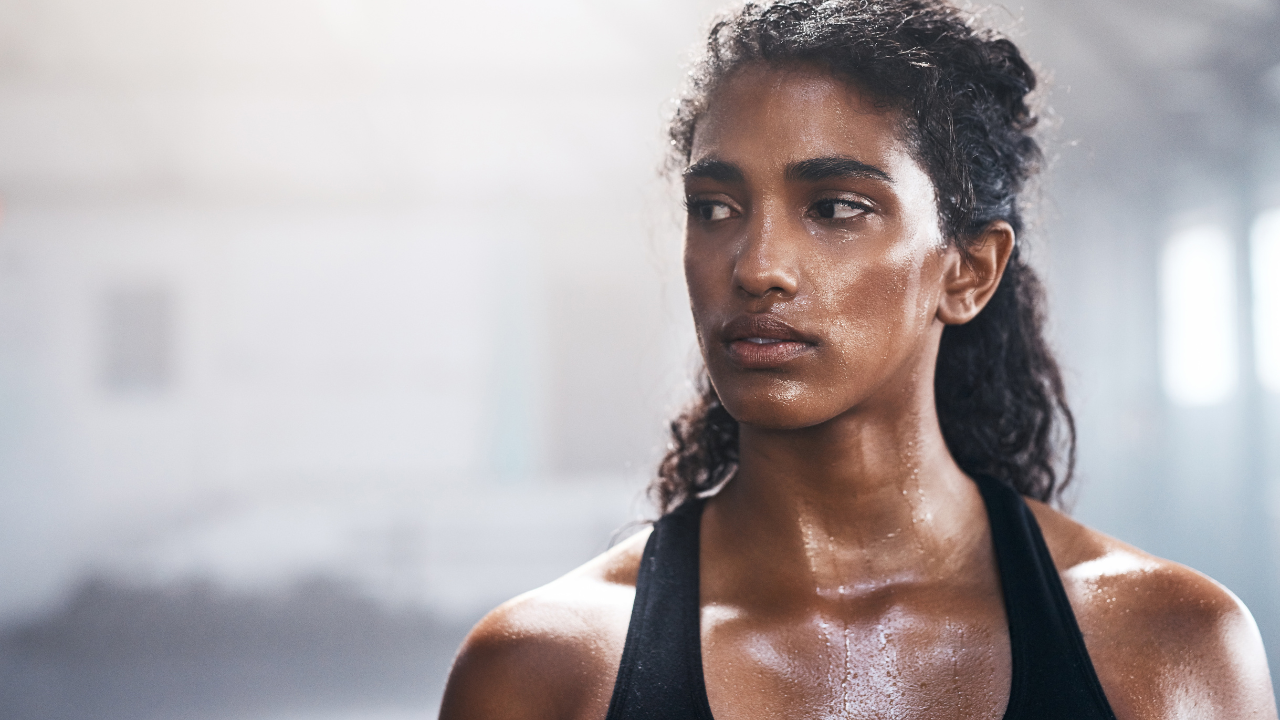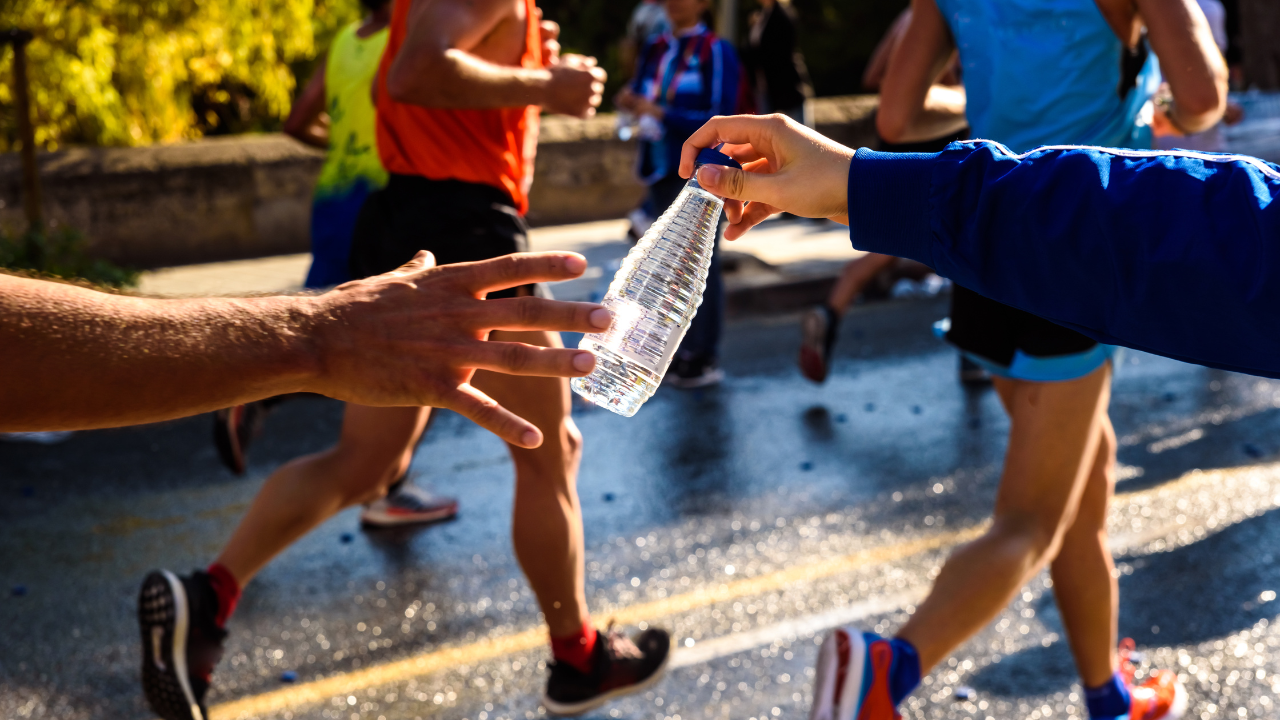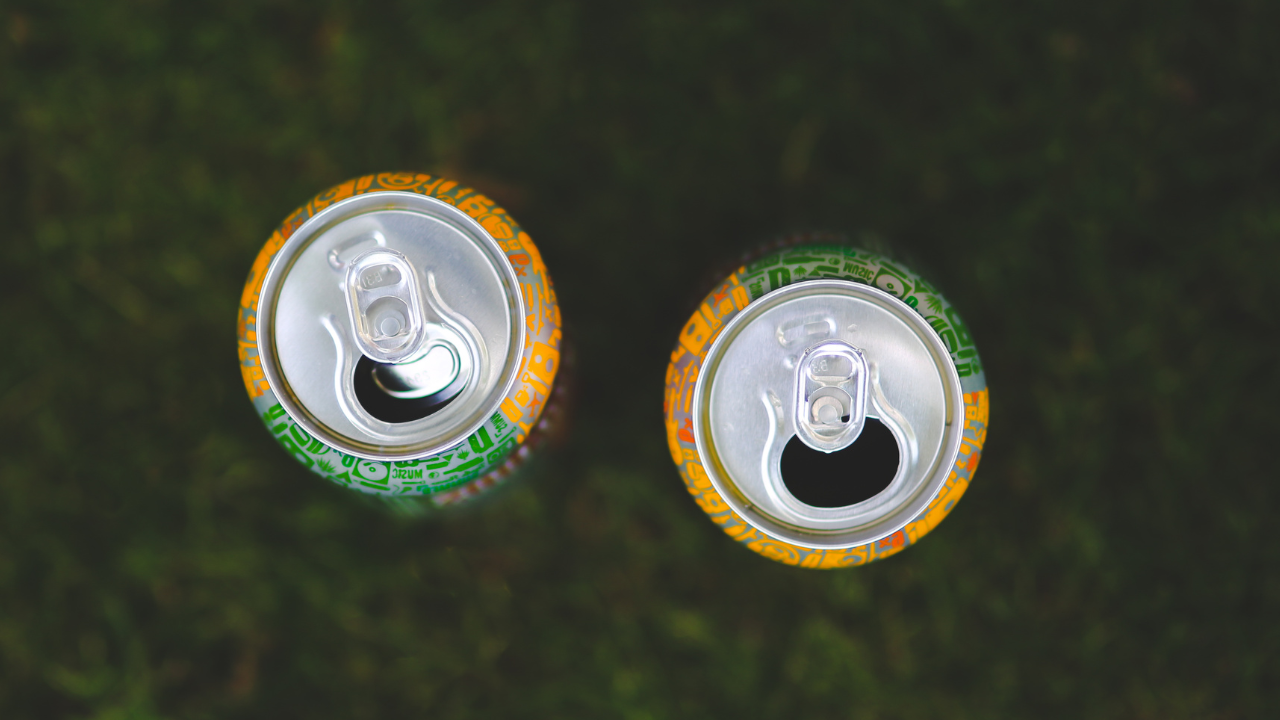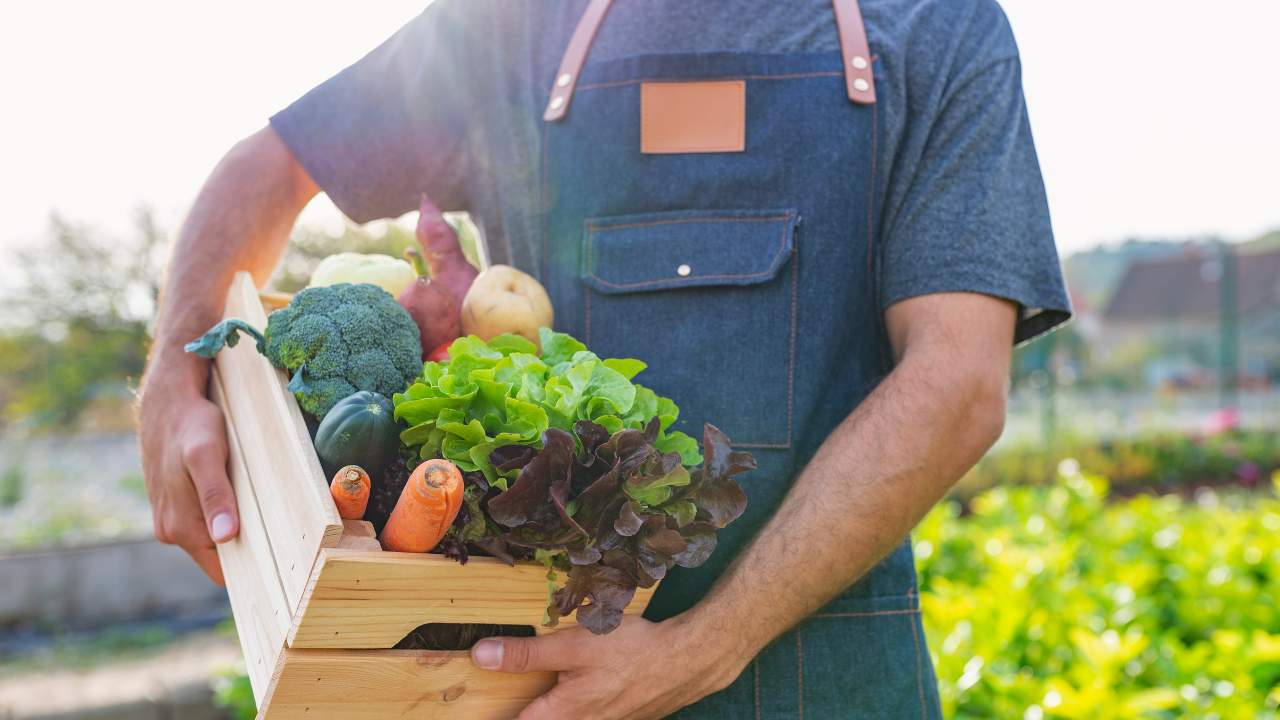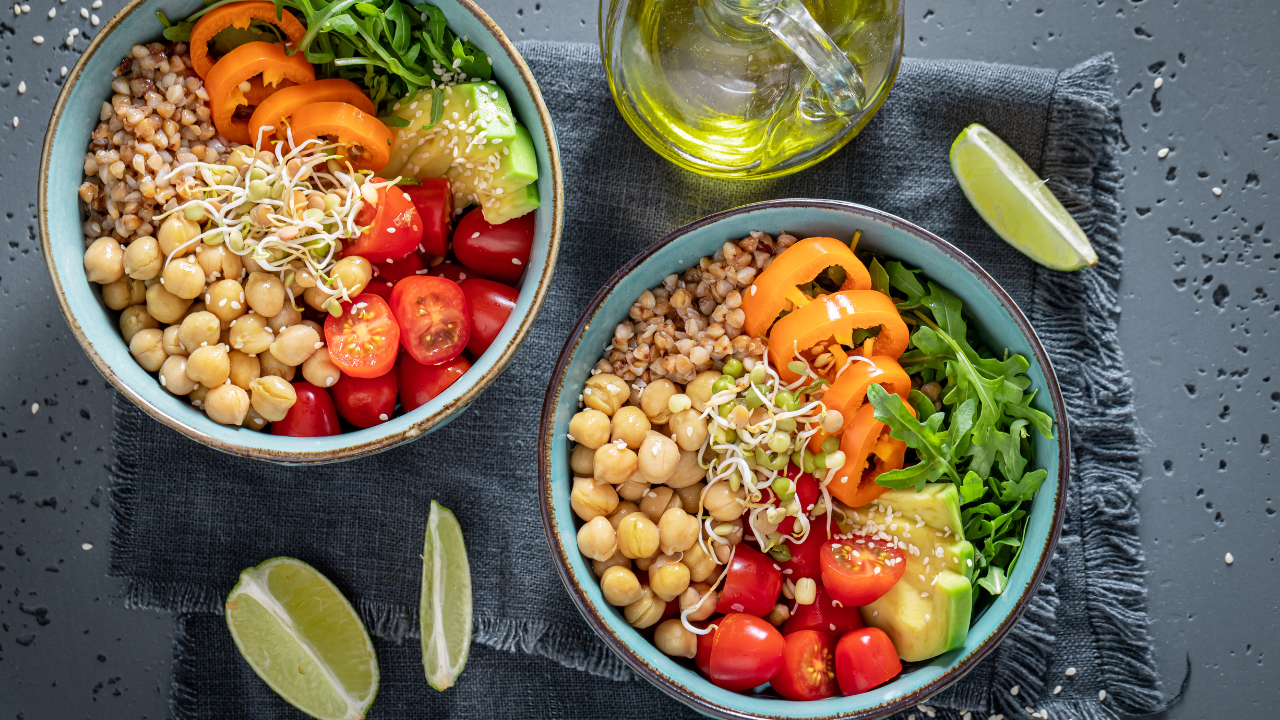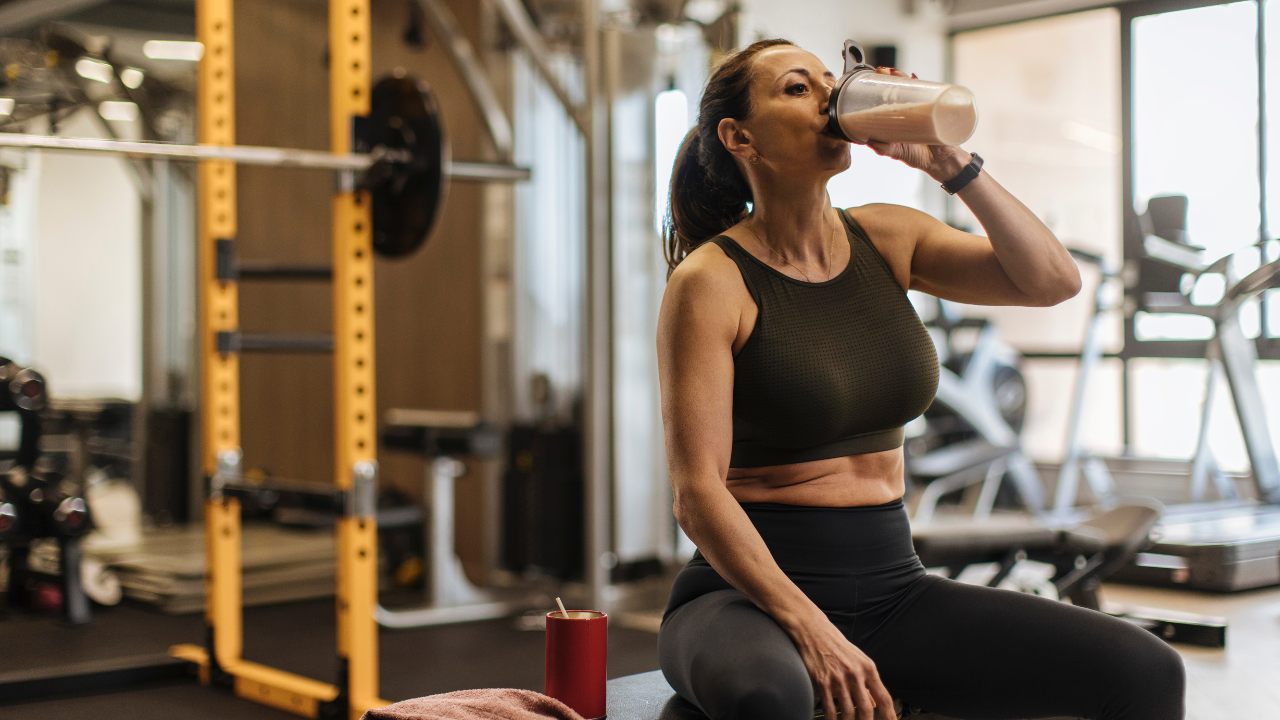Are Electrolyte Drinks Really Worth It?
DISCLAIMER: Links included in this blog might be affiliate links. Health with Hannah, LLC is a participant in the Amazon Services LLC Associates Program along with other affiliate programs. If you purchase a product or service with the links that I provide I may receive a small commission with no additional charge to you. Thank you for your support!
Is plain water no longer good enough? Recently, more and more people have been adding electrolytes to their water with claims that doing so helps them improve hydration. Some even go as far to say that making their daily electrolyte cocktails aids in digestion, decreases fatigue, and reduces stress and anxiety.
So what’s the truth? Are these salty packets necessary? Or will plain ol’ water get the job done?
If you’re new here, hello and welcome! My name is Hannah and I am a non-diet dietitian here to help you improve your relationship with your food and exercise by helping you navigate diet culture b.s.
Table of contents:
What are electrolytes?
Electrolytes are a group of electrically charged minerals that our bodies require for various bodily functions. Sodium (salt) is probably the most well known electrolyte, but there are actually seven altogether.
Sodium
Potassium
Magnesium
Calcium
Chloride
Phosphate
Bicarbonate
Electrolytes help maintain fluid balance, balance our body’s pH levels, help nerve cells to communicate, and regulate muscle contractions. If we do not eat and drink enough electrolytes to replenish what is lost daily through sweat, feces, respiration, etc., we put ourselves at risk of negative health outcomes (some that can even be fatal, such as heat stroke).
Food sources of electrolytes
Electrolytes are fairly abundant in our diet and can be found in a wide variety of foods. Some examples include:
Sodium: table salt, dill pickles, cheese, roasted and salted nuts
Potassium: bananas, avocado, potatoes, milk, salmon
Magnesium: spinach, pumpkin seeds, almonds, lima beans
Phosphorus: milk, chicken, quinoa, tofu
Calcium: milk, cheese, spinach, yogurt
The role of electrolytes in hydration
The human body loses water daily through respiration, gastrointestinal functions, kidney processes, and perspiration (sweating), all of which can be replaced by daily food and beverage consumption. Along with losing water, our body also loses electrolytes that need to be replenished.
As previously mentioned, electrolytes help our bodies to maintain fluid balance inside and outside of cells. Electrolytes also help your body to absorb water from your digestive tract and retain water so too much is not lost through sweating and urination.
How to assess your own hydration
As a dietitian, I frequently get asked how much water we need to drink each day. You may be surprised to learn that the answer is usually not as simple as the stereotypical guide of “eight 8 oz glasses”. 64 ounces can very easily be too much or too little for some people. Hydration status is greatly influenced by how much we sweat and how much we sweat is different from person to person as well as the weather and an individual's activity level.
It’s important to note that most beverages will “count” towards your fluid needs for the day. With the exception of alcohol and excess caffeine, most beverages will have a hydrating effect. Foods with a high water content (such as watermelon and cucumber) will also aid in hydration.
One of the best ways to self-assess your hydration is by the color of your urine. Urine should consistently be a pale yellow color and you should be urinating frequently throughout the day.
If your urine is pale yellow, that is a sign of proper hydration. If your urine is dark, you need more fluids.
If your urine is the color of boxes 4 or 5 above or if you are not urinating regularly, you are likely dehydrated and need to drink more water. Dehydration can lead to muscle fatigue and affect coordination. Be sure to drink fluids all day long, especially before, during, and after a workout.
Dehydration symptoms include:
Muscle cramping
Fatigue
Confusion
Lightheadedness
Dizziness
Dry mouth
Increased heart rate and breathing
Overhydration is possible and can result in hyponatremia (low sodium content in the blood). If your urine is always clear and you are urinating very frequently, you may be overhydrating. More is not always better! Try to keep your urine the color of boxes 1 and 2 in the chart above.
Note: there are other factors that can impact urine color, including medications and health conditions. People with kidney problems or heart disease may have fluid restrictions that they need to follow. Talk to your doctor or dietitian about how much fluid you need each day.
Signs of an electrolyte deficiency
There are various signs that you may have a deficiency in a particular electrolyte.
Sodium
Muscle cramps
Loss of appetite
Dizziness
Chloride
Changes in body’s pH
Irregular heartrate
Potassium
Muscle weakness or paralysis
Mental confusion
Magnesium
Muscle cramps
Nausea
Confusion
Calcium
Osteoporosis/osteopenia
Muscle spasms
What are electrolyte supplements?
Electrolyte supplements come in many varieties, including powders, water soluble tablets, and ready-to-drink beverages. Technically, not all electrolyte drinks are considered “supplements”, as many of them have Nutrition Facts Labels.
Different electrolyte products will have different amounts of each mineral. Because sodium is the electrolyte that we lose the most through sweat, a majority of electrolyte products will be mainly composed of sodium.
Some electrolyte supplements and drinks will have added sugar (which is not a bad thing, as we will discuss below). Many electrolyte products also have zero-sugar versions, which is likely largely due to the low-carb and keto movements. These low-sugar/zero-sugar options may either be unsweetened or use sugar substitutes such as stevia or sucralose.
Who can benefit from electrolyte supplementation?
The average person does not need to be adding electrolytes to their daily beverages. More of these minerals is not always better. However, there are a few key demographics who can greatly benefit from electrolytes supplements and sports drinks.
People doing intense and long workouts regularly
Athletes are the main target audience for electrolyte drinks for a reason. Athletes and highly active individuals can lose large amounts of sodium and other minerals through sweat.
An electrolyte drink or sports drink with carbohydrates is recommended for exercise sessions longer than 60-90 minutes in order to replenish the carbs that are used during exercise. Carbohydrates can also play a role in the hydration process.
If your workouts are indoors, low- to moderate-intensity, and less than 60 minutes in length, you likely don’t need an electrolyte drink or intra-workout carbs. It is still important to stay hydrated and plain water should get the job done.
Related post: What to Eat Before and After a Workout
People who have active, sweaty jobs
If your job leaves you super sweaty, you may benefit from replenishing electrolytes throughout the work day. This is especially important for individuals who work physical jobs outdoors in the heat.
People who are salty sweaters
If your skin and clothing is typically covered in a salty residue during and/or after exercise, this might be a sign that you lose a lot of sodium when you sweat. Having a salty snack or drink may be beneficial to replenish the sodium that is lost.
People who are ill
If you have a fever or are experiencing fluid loss through diarrhea and/or vomiting, you are also losing electrolytes rapidly. Supplementing with an electrolyte beverage can be helpful to prevent dehydration.
People with POTS
Postural Orthostatic Tachycardia Syndrome (POTS) is a disorder of the autonomic nervous system. Individuals with POTS have increased sodium and fluid needs in order to increase their blood volume and adding sodium-rich electrolyte supplements can help them to meet these needs.
Are there risks to electrolyte supplements?
As with all supplements, there is some risk involved, especially if the supplement includes ingredients beyond just minerals and carbohydrates.
That said, many popular electrolyte and sports drinks (such as Liquid IV and Gatorade) will have Nutrition Facts Labels rather than Supplement Facts Labels. This means that they are considered a food product, not a supplement, and they undergo further testing to assure safety and label accuracy. If your electrolyte drink does have Supplement Facts Label, look for proof that the supplement is third party tested. Remember that more is not always better and avoid supplements with very large amounts of any nutrient.
Generally speaking, there is little risk to adding electrolytes like Liquid IV to your beverages. These minerals are water soluble, meaning that we pass any excess through urine. That said, many Americans achieve their daily sodium intake through food alone. Unless you are someone who can specifically benefit from extra sodium, you likely don’t need an electrolyte supplement.
People with high blood pressure or kidney problems need to be mindful of electrolyte intake and check with their doctor or dietitian to ensure they are not consuming too much sodium or any other mineral.
Some sports drinks contain sugar (which we will discuss below). People who do not need these extra carbohydrates will not necessarily benefit from a sugar-containing beverage. Individuals with diabetes or any other condition in which they need to manage their blood sugar levels should be mindful of the carbohydrate content in sports drinks.
Is sugar necessary in electrolyte drinks?
Many electrolyte beverages and sports drinks (such as Gatorade, for example) contain sugar. Your initial reaction may be to scoff and say “why is sugar added to everything?!”. But sugar actually plays a fundamental role in the hydration process.
When we drink water, it does not always get absorbed. The water always gets delivered to the stomach, and then it will either be absorbed by the small intestine or it will keep moving until it makes its way out. When paired with electrolytes in the right ratio, sugar (particularly glucose) helps the water absorb via the small intestine.
An added bonus - sugar tastes good and so it helps athletes to consume products such as Gatorade without it tasting like salt water.
Sugar-free electrolyte supplements and sports drinks may seem like the “healthier” choice, but they actually may be less effective than their sugary counterparts. That said, sugar-containing sports drinks may not be necessary for everyone. Choose what aligns with your dietary preferences and health goals.
Sugar gets a bad rap, but our body literally cannot survive without it. You may decide to not choose sugar-containing beverages, and that’s okay. It’s always your choice to consume the source of carbohydrates that you prefer. But remember that these beverages do serve a purpose and there is no need to judge those who choose to consume a sports drink with simple carbohydrates (sugar) in the name of quick, convenient hydration.
Related post: The Ultimate Guide to Artificial Sweeteners
Dietitian-approved electrolyte drinks
If you think you would benefit from an electrolyte supplement or sports drink, there are quite a few to choose from. Each of these will differ in terms of their electrolyte ratio as well as carbohydrate/sugar content. Choose what makes the most sense for you.
Gatorade and Powerade
The OGs! There’s a reason why sports dietitians everywhere recommend Gatorade and Powerade.
Gatorade and Powerade contain carbohydrates (unless you choose the zero-sugar versions) so these are best for active individuals and athletes who are burning carbohydrates through exercise and would benefit from a quick source of simple sugar to replenish the carbs that are lost during vigorous activity.
Propel
Propel contains zero grams of sugar and only has a small amount of potassium. The sodium content is also not as high as in some of its counterparts. For these reasons, Propel would likely not be the best option for heavy sweaters.
LMNT
Pronounced “element”, LMNT has a very high amount of sodium (1000 mg/packet). This option may be ideal for very heavy sweaters and those with POTS who may find it difficult to consume enough sodium.
Most of the LMNT products contain zero grams of sugar, and therefor would not be ideal for individuals engaging in sustained workouts unless they are obtaining carbohydrates from another source.
Nuun
Nuun comes in a convenient tube and the tablets can be dissolved in water. Nuun tablets have a moderate amount of sodium (about 300 mg/serving) and a well-rounded electrolyte profile with potassium, calcium, magnesium, and chloride.
Liquid IV
Liquid IV is one of the most popular electrolyte drink mixes and now comes in a wide variety of flavors. The original Liquid IV has about 11 grams of sugar per serving, and they now also offer a sugar-free version sweetened with allulose and and stevia.
Buoy
Buoy offers an unflavored option of their electrolyte drops that they claim can be added to any drink. The product is relatively low in each of the electrolytes per serving because they recommend adding it to your beverages 4-7 times each day.
Skratch Labs
Skratch Labs hydration powder comes in individual packets or a bag with a scooper. This drink mix contains sugar and about 400 mg or sodium per serving.
Cure
Cure Hydration is based on the World Health Organization’s Oral Rehydration Solution (ORS) ratio of electrolytes to glucose for “optimal” hydration.
DripDrop
Another convenient hydration powder in single-serve packets, DripDrop contains sodium, potassium, magnesium, and sugar.
Hydration strategies and solutions
Sip sip sip
Thirst may not always be a reliable cue to tell you when your body needs fluid. Rather than relying on thirst alone, sip on fluids all day long.
Bring a reusable water bottle
You will honestly never catch me without my water bottle. I recommend bringing a water bottle with you wherever you can. I have a favorite that I carry with me around the house and I always bring with me in the car.
Check out my Hydration Help page on my Amazon Storefront.
Use a straw
This may sound silly, but using a straw to drink your beverages may help you drink more. Being able to sip through a straw can be an easier task than lifting up your drink and tipping it back to drink. Again, I know this might sound silly, but sometimes our brains need these daily tasks to be as easy as possible.
Make it fun
Remember that plain water is not the only beverage that hydrates us! Spice it up with fruit and herbs such as fresh mint. Some people even like to make fun ice cubes of different shapes or with fruit added in.
I also have a mocktail ebook if you are looking for more ideas!
Be aware of alcohol and excess caffeine
Alcohol and large amounts of caffeine can act as diuretics and result in dehydration.
If you do choose to drink alcohol, be sure to have plenty of other nonalcoholic beverages as well.
Small amounts of caffeine likely won’t come with a large dehydration risk. Once again, just be sure to have plenty of water as well as your caffeinated beverages.
Bottom line
Are electrolyte drinks really necessary? Only in some circumstances.
Unless you are participating in rigorous exercise, overcoming an illness where you are losing lots of fluid, or you have a health condition such as POTS, you likely do not need to be adding electrolytes to your water. By eating a variety of foods, you will likely obtain the minerals that you need.
What did you think of this post? Leave a comment below!
Disclaimer: this post is for informational and educational purposes only and is not a substitute for professional medical advice.

